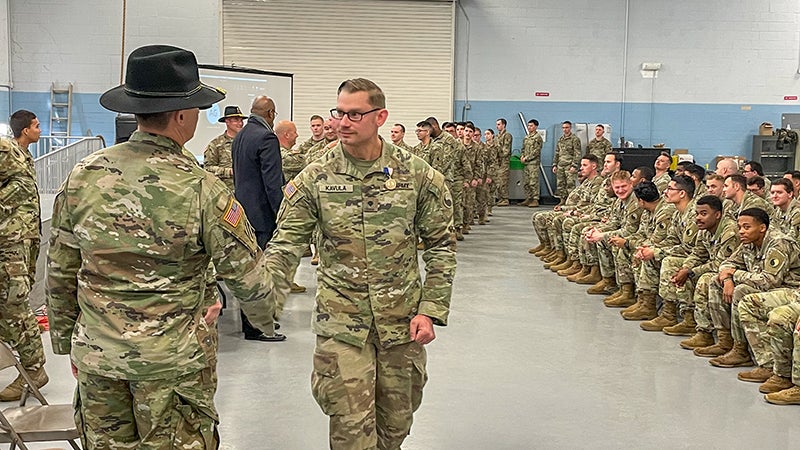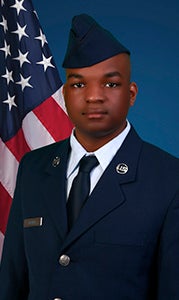A post’s namesake
Published 7:15 pm Saturday, August 7, 2010
Senior Master Sgt. Norman R. “Jack” Matthews likely never dreamed, as he was being forced on the trail of the Bataan Death March 68 years ago, that he’d one day be the namesake of an American Legion post.
A World War II veteran of the U.S. Army Air Corps, Matthews spent 42 months as a prisoner of war in Japanese prison camps — a horrific time that included seeing his brother die of starvation and being forced to take part in the infamous death march.
Matthews’ tale, however, is a tale of survival. He survived through perseverance, he told a News-Herald reporter in 2003. After the camp was liberated in September 1945 — 1,245 days after he had been captured — Matthews received the Purple Heart and Bronze Star medals, among many others. He returned to his hometown of Suffolk, where he married and had children and grandchildren. He began a new career as a building inspector for the city, from which he retired. He attended Liberty Spring Christian Church, and was a dedicated member of Suffolk Post No. 57 of the American Legion.
In March 2009, Matthews passed away at the age of 92. Today, his former post is called Suffolk Post no longer.
A ceremony today will rename the post the Norman “Jack” Matthews Post 57, post historian Mark Culbertson said.
“I don’t know of anyone that has done any more towards that end than he did when he was in the service,” Culbertson said, adding that Matthews spent two years in various hospitals upon his release. “We all thought the world of him.”
According to a News-Herald story on Matthews done in December 2003, Matthews entered the Air Force on June 2, 1941 because he was about to be drafted. He entered the 27th United First Bombardment Squadron as an aircraft gunner.
Just weeks before the Dec. 7, 1941 attack on Pearl Harbor, Hawaii, he was transferred to the Philippines.
“The planes didn’t come with us [to Manila],” Matthews told the News-Herald interviewer in 2003. “We had to fight in the infantry against the Japanese. They were just a rice paddy away. We were in combat everyday.”
In the early morning hours of Dec. 8, 1941, fields all around the unit’s hiding place were bombed. No supplies could be delivered, and few rations were left.
“We ate snakes, monkeys, dogs, horses, everything,” Matthews said in 2003. “We watched bombs fall out of planes daily, hourly.”
In April 1942, the unit’s commanding officer told the soldiers to turn themselves in.
The Japanese forced their prisoners to walk to Camp O’Donnell, 50 miles away. The men walked constantly for eight days, Matthews said, being shot and killed for falling down, assisting others, or sometimes for no reason at all.
Some were run over with Japanese tanks. Others were forced to dig their own graves and be buried alive, Matthews said.
Finally, they reached the camp. Matthews worked in rice paddies and butchered cattle to survive. After two years, a group of prisoners that included Matthews was sent to Japan, where he worked in a copper refinery and a steel mill.
As American troops closed in on Toyama, Matthews’ superior arrived at the steel mill with orders to kill all the prisoners. The Japanese officers, however, failed to follow through, instead evacuating and leaving their guns behind.
“Once we got those guns, we were kings of the valley,” Matthews said in 2003.
Matthews was featured in Ben Plewes’ book, “Suffolk Went to War,” along with dozens of other Suffolk and Nansemond County natives who fought in World War II.
The renaming ceremony for the post will be held at 2 p.m. today at the Suffolk Elks Lodge, 329 W. Constance Road. Some of Matthews’ family, as well as his pastor, will be in attendance.
“He was just a cracker jack guy,” Culbertson said. “We just thought a whole lot of the guy.”





